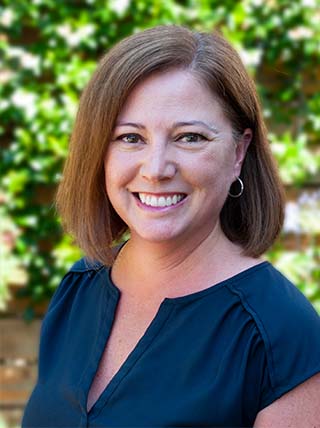
By Leslie Bienen, CHR Writer and Editor
 Amanda F. Petrik, PhD
Amanda F. Petrik, PhD
Going through cancer treatment is difficult enough, without having to worry about money. Financial stress related to cancer care is known to affect mental health—and even treatment outcomes—for cancer patients, a primary reason the National Cancer Institute funded the Cancer Financial Experience (CAFÉ) study. The CAFÉ study, led by co-Principal Investigators Mateo Banegas, PhD, and Nora Henrikson, PhD, and led at the Center for Health Research (CHR) by Amanda Petrik, PhD, is testing whether pairing patients with financial navigators can help reduce the financial stress of cancer treatment.
The Costs of Care
In addition to the rising costs of health care itself, indirect costs related to health care have also increased, including costs for travel, paid caregivers, and interest on loans. Nearly one in three Americans report skipping or putting off health care due to concerns about costs. In addition, patients consistently express frustration at not knowing what out-of-pocket costs will be before receiving care, and about having to base treatment decisions on affordability.
Costs for cancer care tend to be particularly high, unanticipated, and confusing. And cancer care can have some of the highest out-of-pocket expenses. In addition, cancer diagnoses are often overwhelming and stressful, and adding the stressor of costs can be devastating. The National Cancer Institute has adopted the term “financial toxicity” to describe the added stress of financial concerns for cancer patients.
The CAFÉ Study
Patients need help managing costs, and financial navigation services hold promise for providing this help. Financial navigators work with patients, help them to understand the costs of their treatment, and connect them to support and resources.
The CAFÉ study took place at the medical oncology and radiation oncology clinics in the Kaiser Permanente Northwest (KPNW) and KP Washington health systems and was conducted by research teams at CHR and the Kaiser Permanente Washington Health Research Institute in Seattle, Washington.
How Navigation Works
The study assigned patients to one of three groups. One group received usual care; patents in the other two groups were each assigned a financial navigator. Both groups received help from financial navigators at the beginning to assess their financial concerns and get connected to supports. From there, patients in the first group were told they could contact the navigators if they needed additional help over the next six months, while those in the second group received two more rounds of outreach to proactively check in on whether they had financial concerns. The study then measured patient-reported financial hardship after one year. The CAFÉ team is analyzing this data to learn whether navigation reduced patients’ financial stress. Final study results have not yet been published, but the CAFÉ study protocol was published in BMC Trials.
Two study team members served as financial navigators at KPNW—Jennifer Rivelli, who manages CHR’s Behavior Assessment and Change Department, and Blake Locher, a Research Mental Health Interventionist at CHR. Rivelli and Locher worked alongside two navigators at KP Washington. Before any patients were assigned to navigators, the study team spent considerable time and effort figuring out what resources were available to cancer patients and who in the clinics or patient services departments held knowledge about treatment costs and how to deal with them.
Once navigators were assigned to patients, “Our navigators worked in a dynamic fashion to help meet patients’ needs—a broad spectrum that includes identifying resources such as food banks and support for transportation, housing, utilities, out of pocket costs, and navigating the medical financial system. In other words, a range of things that help them feel better and less stressed,” said Petrik.
“It was incredibly satisfying to offer proactive support for participants.” said Locher. “So often, patients with new cancer diagnoses are saturated by the mental, emotional, and physical stresses that come from wrapping their head around their diagnoses and engaging in treatment. I think both patients and navigators alike found it meaningful that the CAFÉ program helps patients consider the financial impacts of treatment as soon as possible and then provides immediate partnership in getting support.”
Patient Perspectives
The navigators’ impressions are supported by patient feedback. All participants in the two financial navigation groups were given a chance to provide feedback about the program during a brief interview. Jennifer Schneider, Qualitative Senior Research Associate at CHR, led the qualitative research efforts for both study sites, looking at overall patient experiences in the program, perceived sense of helpfulness of the navigation, and areas for improvement.
Schneider is currently analyzing nearly 200 responses from these patient interviews. Almost all (99%) expressed high satisfaction with the program, including about frequency of outreach, accessibility of navigators, and caring support provided. Elements patients described as most helpful included having their cost-related questions or concerns efficiently addressed, identification of financial resources, and proactive outreach and advocacy.
All interviewed patients believed that navigation programs should be continued. One English-speaking participant said, “Having somebody hold your hand through the process is big. A healthy person would be overwhelmed with some of the things we have to go through. But someone fighting illness is exhausted and lethargic – it’s scary. The program, the support, and the consistent follow-up helped.” One Spanish-speaking participant said, “The program is very good and in reality, one is worried about their illness, so it's very helpful not to have to worry about solving these [financial] problems as well…It is difficult to know where to get information and with the [navigator] everything was quickly resolved.”
KPNW Adopts CAFÉ Model
Going forward, KPNW’s Oncology Department plans to adopt financial navigation for its patients. Locher and Rivelli will be sharing what they have learned with that department’s new financial navigators, with an emphasis on “warm handoffs” (introducing the patient to another person with the patient present), patient-centered communication, and delivering personalized navigation services. An implementation guide to help other health systems adopt and adapt the program is underway, and the study team is hopeful that KP will adopt the program nationally.
The study team also plans to apply for future grants to disseminate the program and adapt it for Spanish-speaking patients and navigators. Rivelli noted, “We want our work to reinforce the idea that interventions are not just about addressing issues but doing so in a way that respects and understands the unique cultural contexts that shape healthcare experiences for our Hispanic community.”
CAFÉ Study Team
Nora Henrikson, Principal Investigator, KP Washington Research Institute
Mateo Banegas, Principal Investigator, University of California San Diego
CAFÉ Study Team at CHR
Amanda Petrik, Site Investigator
John Dickerson, Biostatistician
Jennifer Schneider, Qualitative Senior Research Associate
Jennifer Rivelli, Manager, Behavior Assessment and Change Department
Blake Locher, Research Mental Health Interventionist
Erin Keast, Analyst
Dan Sapp, Project Manager